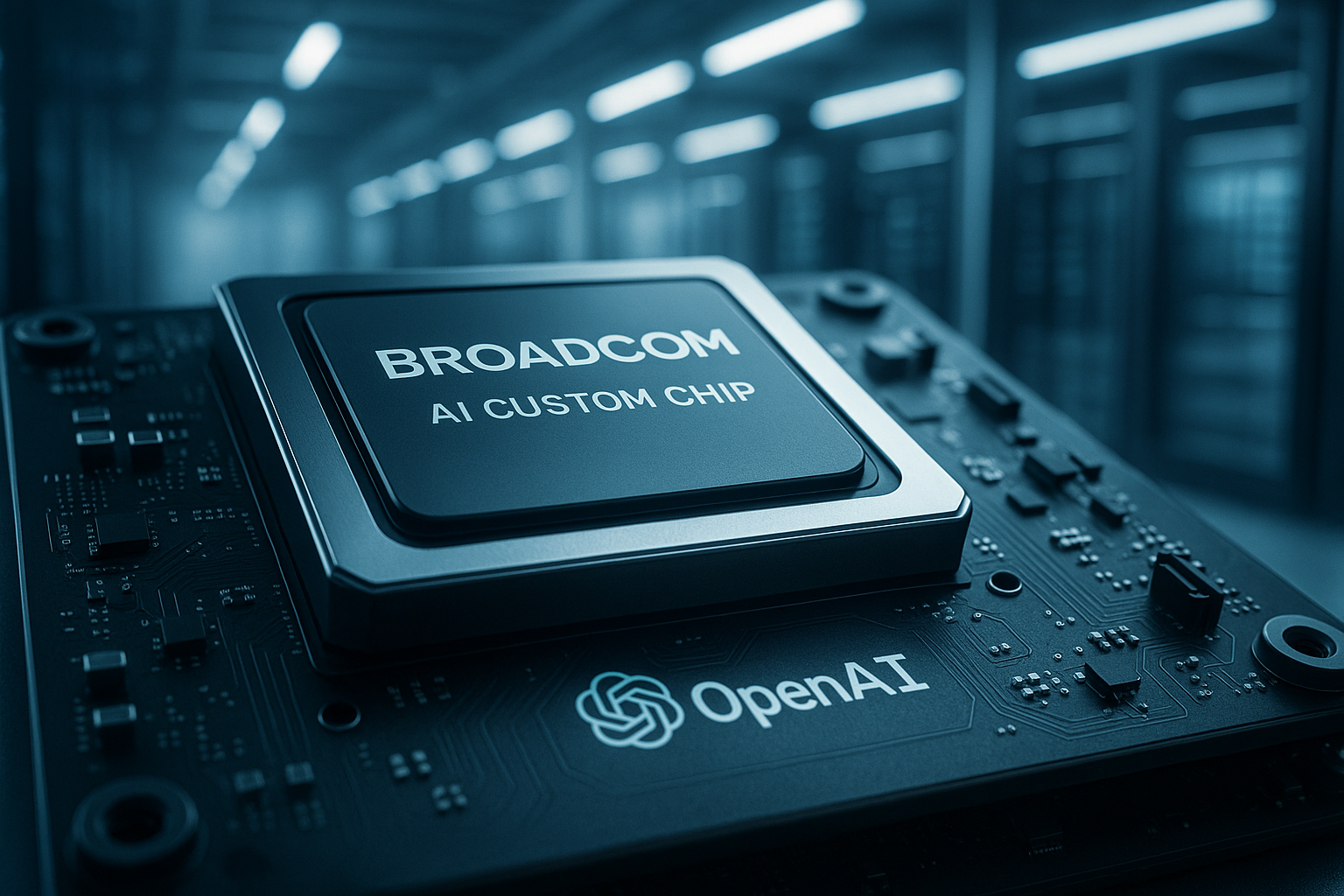Broadcom's stock jumped a hefty 13% in Monday's premarket trading after confirming what Wall Street has been murmuring about for weeks now. They're partnering with OpenAI to build a staggering 10 gigawatts of custom AI chips. Not just another deal—this is Broadcom officially planting its flag in AI chip territory currently dominated by Nvidia, with AMD perpetually running behind like the friend who can't quite keep up on a hike.
The announcement puts to rest all that speculation about Broadcom's mysterious "$10 billion customer" they cryptically mentioned several weeks back. The market, for once, got it right. (I know, I nearly fell out of my chair too.)
What's fascinating here isn't just the deal itself, but how it fits into this bizarre chess game playing out in AI infrastructure. Think about it—for a year and a half, these companies have been working together behind closed doors while OpenAI has been publicly spreading its chips budget around like a nervous divorcee on a dating app. Within just weeks, they've announced major partnerships with Nvidia (obviously), AMD (forever the bridesmaid, never the bride), Oracle (who knew they were still relevant?), and now Broadcom.
Look, what we're seeing isn't random. There's a pattern here that tells us something fundamental: infrastructure scarcity is the primary bottleneck for AI advancement. OpenAI isn't just shopping for chips—they're essentially restructuring the entire semiconductor supply chain around their computational hunger.
It's like vertical integration without actually owning anything. Instead of buying the cow, OpenAI's becoming everyone's favorite milk customer. When you're planning to consume compute at planetary scale, you simply can't afford to have all your eggs in one Jensen Huang-shaped basket. What happens if Nvidia jacks up prices 30%? Or if manufacturing issues delay the next chip generation? The AI train waits for no one, least of all semiconductor manufacturing hiccups.
For Broadcom, this represents a calculated pivot. They've long been the networking and storage folks—solid business, but hardly the sexiest kid on the semiconductor block. Under Hock Tan (a CEO known for being about as sentimental as a calculator when it comes to capital allocation), they've maintained disciplined growth through targeted acquisitions. Now they've found their angle into the AI gold rush: custom silicon for literally the most compute-hungry organization on Earth.
The timing here speaks volumes. They've been working together for 18 months—which, if you're keeping track, is almost exactly when AI compute demand started exceeding available supply. I've spoken with several industry insiders who believe these discussions probably started with a simple question: "What if we built chips specifically for our workloads instead of adapting general-purpose GPUs?" At OpenAI's scale, the economics become compelling.
From a market perspective, this creates fascinating ripples. Nvidia's stock has essentially been priced for total AI dominance—not for a future where the biggest players design their own silicon with Broadcom's help. AMD has been positioning itself as the alternative, but now faces competition from both directions. Meanwhile, Broadcom gets to slide into the most lucrative part of the semiconductor market without having to build a general-purpose AI chip business from scratch.
What we're watching unfold is a new competitive equilibrium. The biggest AI companies are too important for chip manufacturers to ignore, yet too dependent on chips to risk single-sourcing. The result? This elaborate partnership dance where everyone gets something they need while keeping their options open.
For investors, the billion-dollar question becomes: which semiconductor companies best navigate this transition from general-purpose AI chips to custom silicon partnerships? Nvidia still has that enormous lead in software ecosystem and architectural know-how. AMD brings vast manufacturing partnerships. And now Broadcom brings specialized design capabilities and networking expertise to the table.
I can't stop thinking about Nvidia's $2.3 trillion market cap. That valuation assumes not just leadership but near-monopoly in AI acceleration. Every partnership like this Broadcom-OpenAI deal chips away at that assumption. Not enough to dethrone Jensen's leather jacket empire immediately, but enough to make you wonder if the AI chip market might eventually resemble... well, an actual competitive market.
And isn't that just how these tech cycles always play out? The pioneer establishes dominance, Wall Street throws monopoly valuations at them, then competitors gradually erode the moat through specialized offerings and strategic partnerships. It's not a question of if, but how fast and how much.
For Broadcom shareholders enjoying today's rally, the lesson couldn't be clearer: in the AI era, nothing beats being chosen. Being OpenAI's pick today is like being chosen by Apple for the iPhone back in 2007—a golden ticket to semiconductor heaven.
At least until the next technological wave comes along and reshuffles the whole deck again. Because in tech, that's the only real constant.
